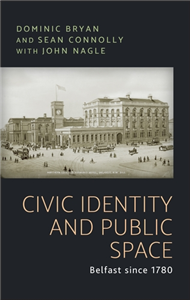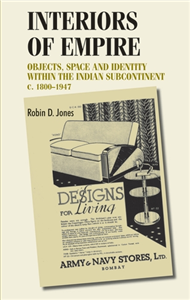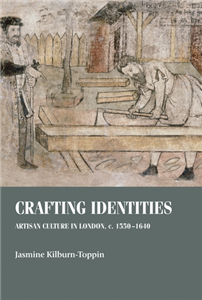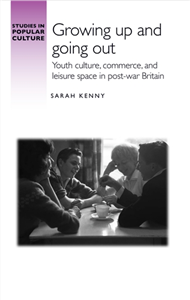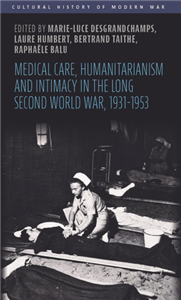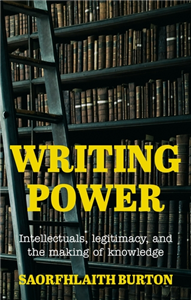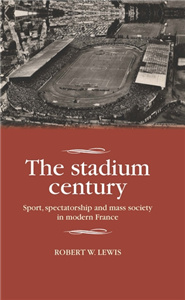Your Search Results
-
Spatterlight
We manage rights for science-fiction and fantasy legend Jack Vane (1916 - 2013) and selected titles by Tanith Lee, Michael Shea, Matthew Hughes, and others.
View Rights Portal
-
Promoted ContentHumanities & Social SciencesMarch 2022
Civic identity and public space
Belfast since 1780
by Dominic Bryan, Sean J. Connolly, John Nagle
Civic identity and public space, focussing on Belfast, and bringing together the work of a historian and two social scientists, offers a new perspective on the sometimes lethal conflicts over parades, flags and other issues that continue to disrupt political life in Northern Ireland. It examines the emergence during the nineteenth century of the concept of public space and the development of new strategies for its regulation, the establishment, the new conditions created by the emergence in 1920 of a Northern Ireland state, of a near monopoly of public space enjoyed by Protestants and unionists, and the break down of that monopoly in more recent decades. Today policy makers and politicians struggle to devise a strategy for the management of public space in a divided city, while endeavouring to promote a new sense of civic identity that will transcend long-standing sectarian and political divisions.
-
Promoted ContentLiterature & Literary StudiesMarch 2023
Sleep and its spaces in Middle English literature
Emotions, ethics, dreams
by Megan Leitch
Middle English literature is intimately concerned with sleep and the spaces in which it takes place. In the medieval English imagination, sleep is an embodied and culturally determined act. It is both performed and interpreted by characters and contemporaries, subject to a particular habitus and understood through particular hermeneutic lenses. While illuminating the intersecting medical and moral discourses by which it is shaped, sleep also sheds light on subjects in favour of which it has hitherto been overlooked: what sleep can enable (dreams and dream poetry) or what it can stand in for or supersede (desire and sex). This book argues that sleep mediates thematic concerns and questions in ways that have ethical, affective and oneiric implications. At the same time, it offers important contributions to understanding different Middle English genres: romance, dream vision, drama and fabliau.
-
 Trusted Partner
Humanities & Social SciencesJuly 2015
Trusted Partner
Humanities & Social SciencesJuly 2015Governing Europe's spaces
European Union re-imagined
by Dimitris Papadimitriou, Caitriona Carter, Martin Lawn, Simon Bulmer, Andrew Geddes, Peter Humphreys
What do we imagine when we imagine Europe and the European Union? To what extent is our understanding of the EU - of its development, its policies and its working processes - shaped by unacknowledged assumptions about what Europe really is? The book constructs a case for re-imagining Europe - not as an entity in Brussels or a series of fixed relations - but as a simultaneously real and imagined space of action which exists to the extent that Europeans and others act in and on it. This Europe is constantly being made in particular spaces, through specific actor struggles, whose interconnections are often ill-defined. We ask how do those concerned with building Europe, with extending and elaborating the EU, think of where they are and what they are doing? The book captures Europeans in the process of making Europe: of performing, interpreting, modelling, referencing, consulting, measuring and de-politicising Europe. ;
-
 Trusted Partner
Political ideologiesMay 2017
Trusted Partner
Political ideologiesMay 2017Neoliberal power and public management reforms
by Professor Peter Triantafillou. Series edited by Mark Haugaard
This book examines the links between major contemporary public sector reforms and neoliberal thinking. The key contribution of the book is to enhance our understanding of contemporary neoliberalism as it plays out in the public administration and to provide a critical analysis of generally overlooked aspects of administrative power. The book examines the quest for accountability, credibility and evidence in the public sector. It asks whether this quest may be understood in terms of neoliberal thinking and, if so, how? The book makes the argument that while current administrative reforms are informed by several distinct political rationalities, they evolve above all around a particular form of neoliberalism: constructivist neoliberalism. The book analyses the dangers of the kinds of administrative power seeking to invoke the self-steering capacities of society and administration itself.
-
 Trusted Partner
November 2016
Trusted Partner
November 2016Städtische öffentliche Räume / Urban public spaces
Planungen, Aneignungen, Aufstände 1945–2015 / Planning, appropriation, rebellions 1945–2015
by Herausgegeben von Bernhardt, Christoph
-
 Trusted Partner
Trusted Partner
-
 Trusted Partner
Humanities & Social SciencesNovember 2007
Trusted Partner
Humanities & Social SciencesNovember 2007Interiors of empire
Objects, space and identity within the Indian Subcontinent, c. 1800–1947
by Robin Jones, Christopher Breward, Bill Sherman, Alan Rutter
Interiors of Empire uses the methods of design history and material culture studies to analyse the domestic and public interiors of the British and local middle class during the heyday of the British Raj. It contrasts representations of that space within contemporary discourse with analysis of historical evidence, the varying uses of such space, and relevant social practices. Through detailed discussion of these texts, spaces, objects and practices, this study locates the domestic interiors and public spaces of empire in the history of the British colonisation of India. The book discusses the imagined barrier of the domestic against the local environment, the intrusions of the local and the effects of this on the British in India, and assesses the gradual westernisation of domestic and public spaces of empire. This work will be of interest to students and scholars of design history, material culture and colonial history. ;
-
 Trusted Partner
Humanities & Social SciencesJune 2019
Trusted Partner
Humanities & Social SciencesJune 2019Civic identity and public space
by Sean Connolly, Dominic Bryan, John Nagle
-
 Trusted Partner
Humanities & Social SciencesJune 2022
Trusted Partner
Humanities & Social SciencesJune 2022Foreign policy as public policy?
by Klaus Brummer, Sebastian Harnisch, Kai Oppermann, Diana Panke
-
 Trusted Partner
Literature & Literary StudiesJune 2021
Trusted Partner
Literature & Literary StudiesJune 2021Sleep and its spaces in Middle English literature
by Megan Leitch, Anke Bernau, David Matthews, James Paz
-
 Trusted Partner
Trusted Partner
-
 Trusted Partner
Humanities & Social SciencesDecember 2021
Trusted Partner
Humanities & Social SciencesDecember 2021Crafting identities
Artisan culture in London, c. 1550–1640
by Jasmine Kilburn-Toppin, Christopher Breward, James Ryan
Crafting identities explores artisanal identity and culture in early modern London. It demonstrates that the social, intellectual and political status of London's crafts and craftsmen were embedded in particular material and spatial contexts. Through examination of a wide range of manuscript, visual and material culture sources, the book investigates for the first time how London's artisans physically shaped the built environment of the city and how the experience of negotiating urban spaces impacted directly on their distinctive individual and collective identities. Applying an innovative and interdisciplinary methodology to the examination of artisanal cultures, the book engages with the fields of social and cultural history and the histories of art, design and architecture. It will appeal to scholars of early modern social, cultural and urban history, as well as those interested in design and architectural history.
-
 Trusted Partner
Humanities & Social SciencesNovember 2024
Trusted Partner
Humanities & Social SciencesNovember 2024US public diplomacy in socialist Yugoslavia, 1950–70
Soft culture, cold partners
by Carla Konta
The first comprehensive account of the public and cultural diplomacy campaigns carried out by the US in Yugoslavia during the height of the Cold War, this book examines the political role of culture in US-Yugoslav bilateral relations and the fluid links between information and propaganda. Tito allowed the US Information Agency and the State Department's cultural programmes to enter Yugoslavia, liberated from Soviet control. The exchange of intellectual and political personnel helped foster the US-Yugoslav relationship, yet it posed severe ideological challenges for both sides. By providing new insights into porous borders between freedom and coercion in Tito's regime, this book shows how public diplomacy acted as an external input for Yugoslav liberalisation and dissident movements. Using extensive archival research and interviews, Konta analyses the links between information and propaganda, and the unintended effects of propaganda beyond the control of producers and receivers.
-
 Trusted Partner
Humanities & Social SciencesFebruary 2025
Trusted Partner
Humanities & Social SciencesFebruary 2025Growing up and going out
Youth culture, commerce, and leisure space in post-war Britain
by Sarah Kenny
In the decades following the Second World War, youthful sociability was remade as young people across Britain flocked to newly-opened coffee bars, beat clubs, and discos. These spaces, increasingly unknown and unfamiliar to the adults who passed by them, played a remarkable role in reshaping town and city centres after dark as sites of leisure and recreation. Telling the history of youth in post-war Britain from the ground up, through the towns and cities that young people moved through, this book traces how the new spaces of post-war youth leisure transformed both young people's relationship with their local environment and adults' perceptions of the possibilities and dangers of modern leisure. Growing up and going out offers a timely study of youth, commerce, and leisure that explores the reimagination, remaking, and regulation of the post-war city after dark.
-
 Trusted Partner
Humanities & Social SciencesMay 2005
Trusted Partner
Humanities & Social SciencesMay 2005Negotiated governance and public policy in Ireland
by George Taylor
Over the past ten years the Irish polity has experienced profound change. The pessimism that had engulfed Irish society during the 1980s has given way to a new found confidence, one that befits its status as an emerging, confident and cosmopolitan European state. This book provides a theoretical examination of this startling turnaround in the fortunes of the Irish polity and details the developments that have taken place in key areas of public policy over the last decade: civil service reform, the welfare state, environmental policy abd rural development. ;
-
 Trusted Partner
Trusted Partner
-
 Trusted Partner
Business, Economics & LawJuly 2025
Trusted Partner
Business, Economics & LawJuly 2025Medical care, humanitarianism and intimacy in the long Second World War, 1931-1953
by Marie-Luce Desgrandchamps, Laure Humbert, Bertrand Taithe, Raphaële Balu
This book offers a micro-global history of humanitarianism and medical care during the 'long' Second World War, which challenges the traditional and Eurocentric chronological boundaries of 1939/1945. It takes as its starting point the Japanese invasion of Manchuria in 1931, which led to the progressive dislocation of the League of Nations, with the Japanese, German and Soviet departures in the 1930s. It ends with the termination of the Korean War in 1953, and the subsequent dismantlement of the first United Coalition and UN Peace enforcement operation. It considers the slow, messy and ambivalent transformation of humanitarian actors' relations to the suffering of distant others through a study of humanitarian encounters, practices, spaces and affects. Paying close attention to a variety of actors, such as French colonial doctors, Swiss ICRC delegates, Egyptian relief workers, Chinese-style physicians, Peruvian and Ecuadorian nurses or American member of the Unitarian Service Committee, the book provides a more holistic story of humanitarianism.
-
 Trusted Partner
Humanities & Social SciencesSeptember 2025
Trusted Partner
Humanities & Social SciencesSeptember 2025Writing power
Intellectuals, legitimacy, and the making of knowledge
by Sarah Victoria Alexandra Burton
Writing power radically rethinks the place of the canon and canonicity as objects and concepts in contemporary academia and the everyday intellectual practices of academics. It is distinctive in its demonstration of how academics' engagements with canons shape their writing practices but also how scholars' writing practices, spaces, proclivities, and desires shape the canon and changing ideas of value in canonicity. The book thinks through frequently discussed problems of legitimacy and knowledge production from fresh perspectives of lived experience and the everyday to offer new insights into the politics of knowledge in contemporary social sciences.
-
 Trusted Partner
Humanities & Social SciencesOctober 2021
Trusted Partner
Humanities & Social SciencesOctober 2021Loyalty, memory and public opinion in England, 1658–1727
by Peter Lake, Anthony Milton, Jason Peacey, Alexandra Gajda, Edward Vallance
-
 Trusted Partner
20th century history: c 1900 to c 2000December 2016
Trusted Partner
20th century history: c 1900 to c 2000December 2016The stadium century
Sport, spectatorship and mass society in modern France
by Robert W. Lewis. Series edited by Maire Cross, David Hopkin
The stadium century traces the history of stadia and mass spectatorship in modern France from the vélodromes of the late nineteenth century to the construction of the Stade de France before the 1998 soccer World Cup. As the book demonstrates, the stadium was at the centre of debates over public health and urban development and proved to be a key space for mobilising the urban crowd for political rallies and spectator sporting events alike. After 1945, the transformed French stadium constituted part of the process of postwar modernisation but also was increasingly connected to global transformations to the spaces and practices of sport. Drawing from a wide range of sources, the stadium century links the histories of French urbanism, mass politics and sport through the stadium in an innovative work that will appeal to historians, students of French history and the history of sport, and general readers alike.



